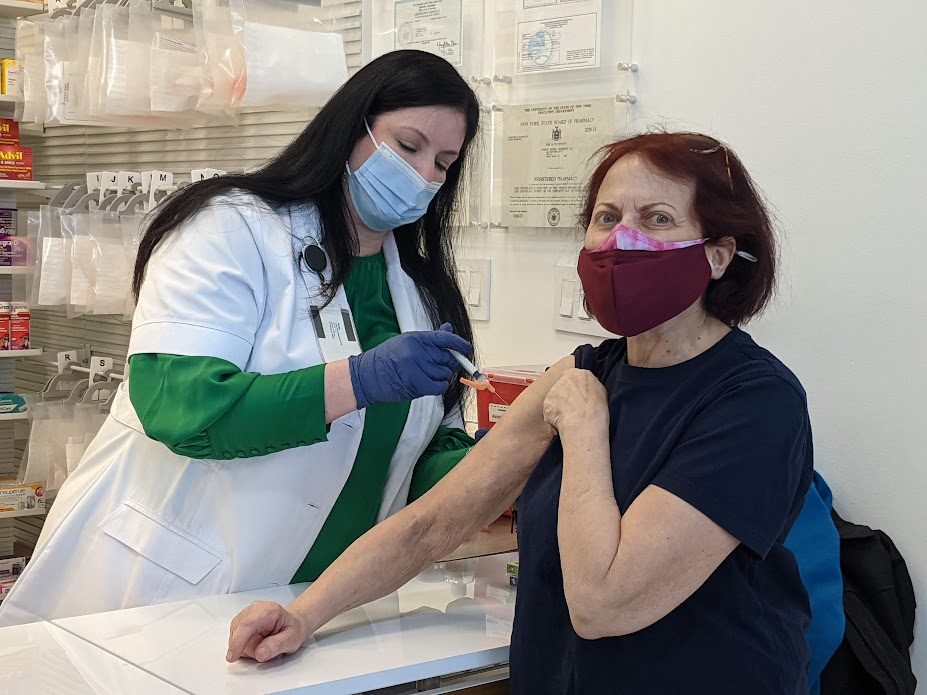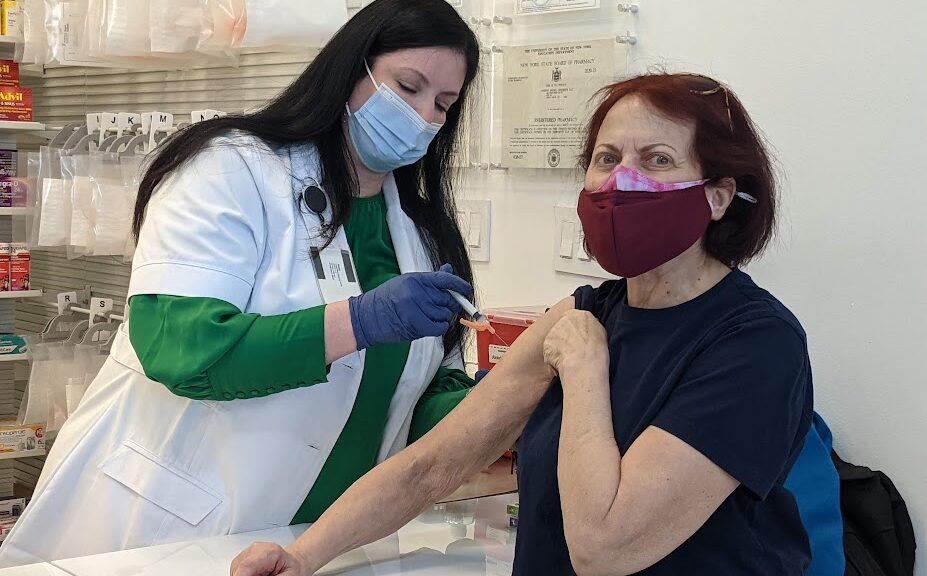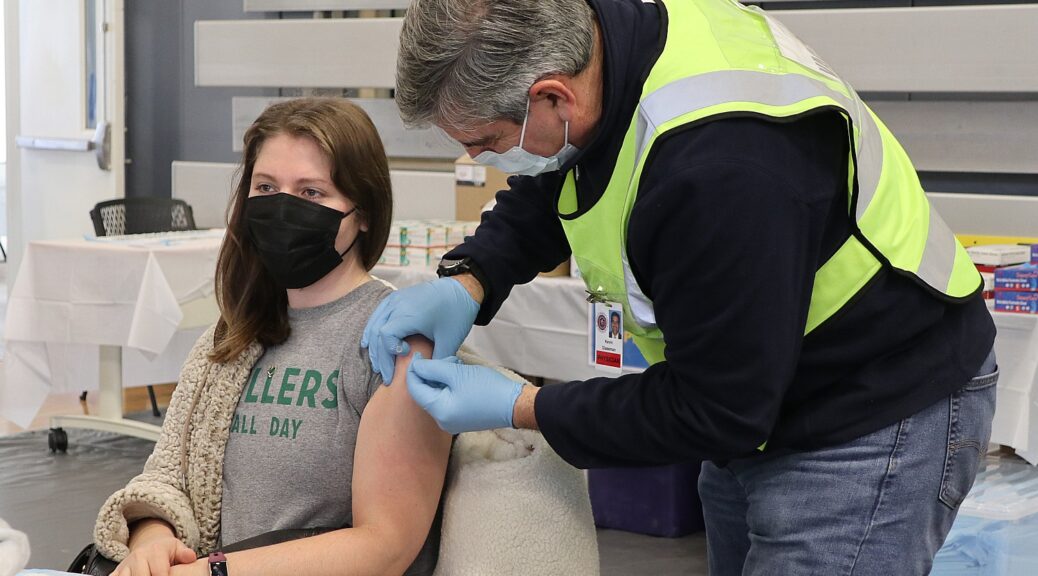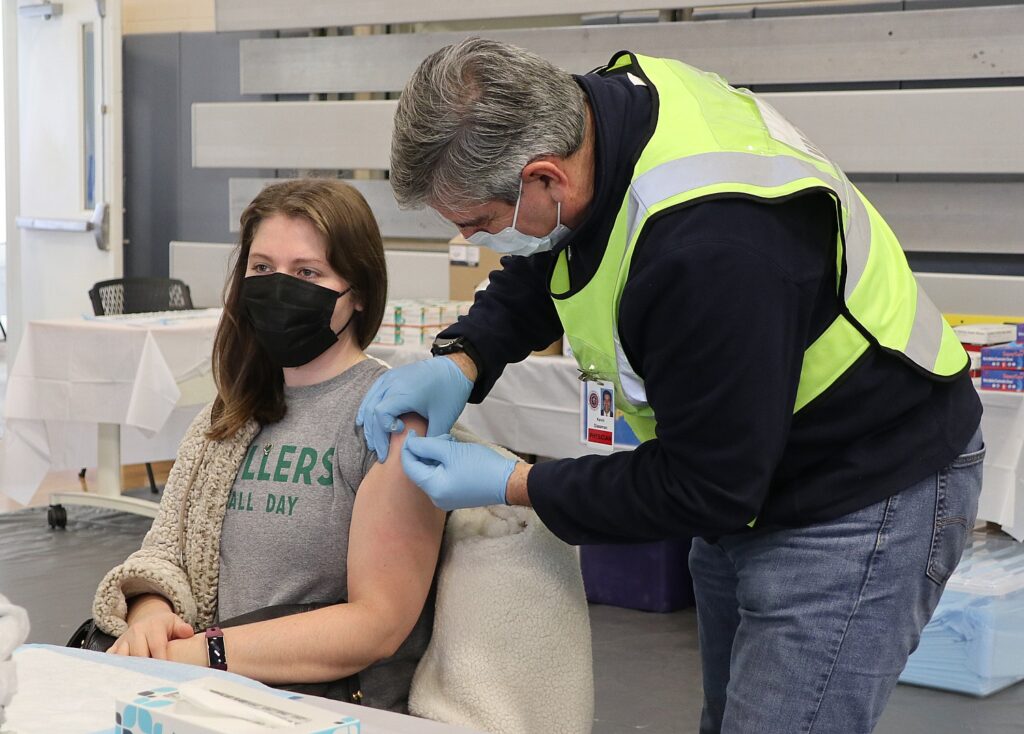
A valid concern Americans should hold is that public health has been so politicized, so weaponized that leaders on all levels of government – federal, state, and local – who are responsible for the welfare of their constituents, along with the weakening of their ability to take action to protect public health by the radical rightwing extremist judiciary put into place by McConnell and Trump, that we will not be informed when there is a new threat, that they will take action to quarantine, mandate masks and vaccinations to prevent hospital systems from being overwhelmed, and certainly, that concern that there won’t be the resources, the expertise, the means, infrastructure or the fortitude to protect us from the next pandemic. And the next pandemic is certain to take place, not in 100 years, but pushed forward by the changes to the ecosystem because of human-caused climate change.
More than one million died of COVID, millions more are suffering long-COVID; it is estimated that 70 percent died needlessly, avoidably, while Biden’s swift actions to set up a comprehensive vaccination-delivery program (free tests, free masks, free vaccinations), saved 2 million lives. With this in mind, the Biden-Harris Administration is taking steps, setting up the mechanisms to obtain vaccines, treatments and tests – while Florida Governor and presidential wannabe Ron DeSantis has actually made it illegal for Floridians to have a public response to a pandemic and Congressional Republicans show no interest whatsoever in allocating the funds to save lives. (Trump had dismantled the pandemic response infrastructure set up by the Obama Administration. Here is a fact sheet form the White House on its launch of Office of Pandemic Preparedness and Response Policy: –Karen Rubin/news-photos-features.com
The Biden-Harris Administration has made historic progress on our nation’s ability to manage COVID-19 so that it no longer meaningfully disrupts the way we live our lives. Under President Biden’s leadership, the Administration has taken significant steps to ensure all individuals have continued access to lifesaving protections such as vaccines, treatments, and tests, and that the nation is well prepared to manage the risks of COVID-19 or other causes of potential pandemics in the future.
As part of the President’s commitment to ensure that our country is more prepared for a pandemic than we were when he took office, the Administration is standing up the Office of Pandemic Preparedness and Response Policy (OPPR). This will be a permanent office in the Executive Office of the President (EOP) charged with leading, coordinating, and implementing actions related to preparedness for, and response to, known and unknown biological threats or pathogens that could lead to a pandemic or to significant public health-related disruptions in the United States. OPPR will take over the duties of the current COVID-19 Response Team and Mpox Team at the White House and will continue to coordinate and develop policies and priorities related to pandemic preparedness and response.
To lead this work, the President announced that Major General (ret) Paul Friedrichs will serve as the inaugural Director of OPPR and Principal Advisor on Pandemic Preparedness and Response as of August 7, 2023. Maj. Gen. (ret) Friedrichs’ unparalleled experience makes him the right person to lead this office. He is currently Special Assistant to the President and Senior Director for Global Health Security and Biodefense at the National Security Council (NSC). Maj. Gen. (ret) Friedrichs previously served as Joint Staff Surgeon at the Pentagon, where he coordinated all issues related to health services, provided medical advice to the Chairman of the Joint Chiefs of Staff and served as medical adviser to the Department of Defense (DoD) Covid-19 Task Force.
The Office of Pandemic Preparedness and Response Policy will:
Coordinate the Administration’s domestic response to public health threats that have pandemic potential, or may cause significant disruption, and strengthen domestic pandemic preparedness. This includes ongoing work to address potential public health outbreaks and threats from COVID-19, Mpox, polio, avian and human influenza, and RSV.
Drive and coordinate federal science and technology efforts related to pandemic preparedness. Specifically, OPPR will oversee efforts to develop, manufacture, and procure the next generation of medical countermeasures, including leveraging emerging technologies and working with HHS on next generation vaccines and treatments for COVID-19 and other public health threats. During the height of the pandemic, the Biden-Harris Administration made historic investments in COVID-19 vaccines, tests, and treatments that were made widely available. OPPR will continue to leverage these investments as it drives future progress in combatting COVID-19 and other public health threats.
Develop and provide periodic reports to Congress. As required by statute, OPPR will develop and provide to Congress a biennial Preparedness Review and Report and Preparedness Outlook Report every five years.
Major General (ret) Paul Friedrichs, Inaugural Director of OPPR and Principal Advisor on Pandemic Preparedness and Response
Major General Friedrichs is currently Special Assistant to the President and Senior Director for Global Health Security and Biodefense at the National Security Council (NSC). Prior to joining the NSC, Dr. Friedrichs most recently served as the Joint Staff Surgeon and the medical advisor to the Department of Defense (DoD) COVID-19 Task Force. Throughout his career he has worked closely with Federal, State, Tribal, local, and territorial government partners, as well as industry and academic counterparts and has been active in multiple professional medical societies. Dr. Friedrichs has also overseen the DoD global patient evacuation system, supporting global medical care and numerous interagency domestic and global disaster responses. He led the DoD Task Force which developed plans to implement high reliability medical principles across DoD and stood up the Air Force’s first medical analytics capabilities. Over the course of his 37-year career, he has led military hospitals and regional and global health care systems, published multiple medical papers, and consistently sought opportunities to partner with colleagues to improve health care delivery and preparedness. As the United States’ representative to the North Atlantic Treaty Organization Committee of Military Medical Chiefs, he worked closely with many of America’s closest allies and partners throughout the pandemic and in developing medical support to the Ukrainian military.
Dr. Friedrichs is a board-certified physician who has cared for hundreds of patients in combat and managed broad domestic and global public health threats. He has spent all of his career in public service, having first received his commission through Reserve Officer Training Corps in 1986 and rising to Major General in 2023.



